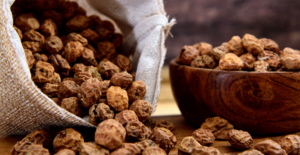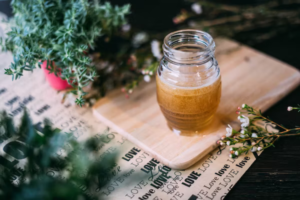We have all had mushrooms. Other than being a delicacy for many, and just another vegetable for some, it is also a very rich source of vital nutrients and is also used in medicines. Although they are commonly seen as vegetables, they are neither a plant nor an animal. They are a type of fungi ( yuck!). Alright, enough of biology for today. Today we discuss the importance of mushrooms and how organic mushrooms are a better choice to stick with in the long run.
Conventional (Non-Organic) Mushrooms
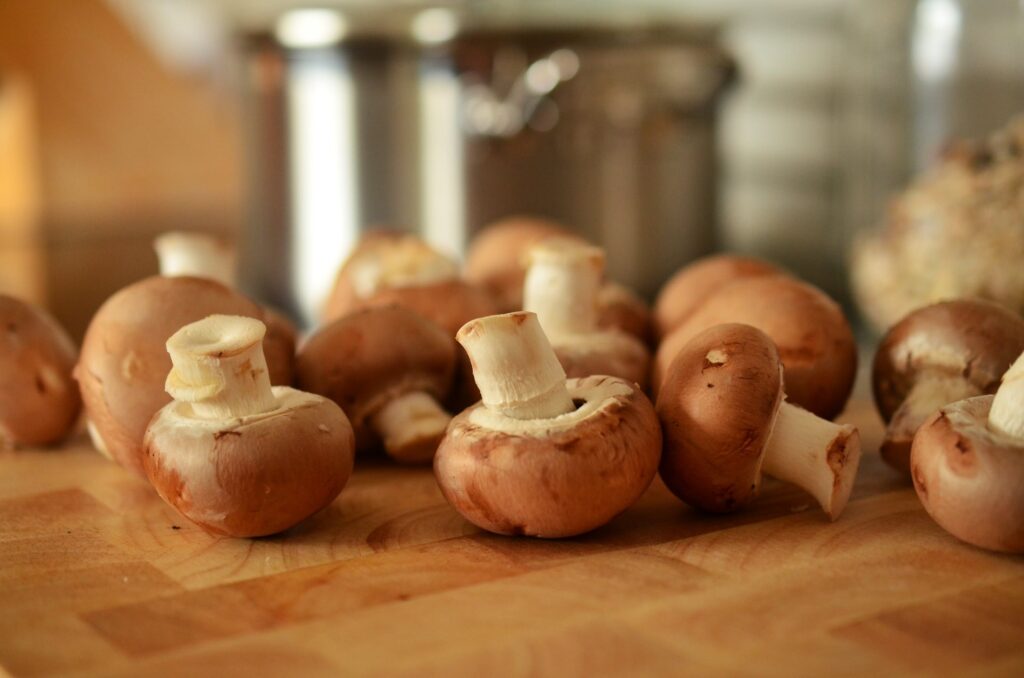
Let’s first understand what are non-organic or the usual mushrooms that you must be buying from the supermarket.
Mushrooms, in general, are rich in nutritional value. They are low in fat and calories and rich in nutrients like B vitamins (e.g., riboflavin, niacin) and minerals (e.g., selenium, potassium). It is also used in diverse culinary dishes such as salads, soups, etc.
Conventional mushrooms are cheaper and more affordable, they are more likely to be available in your nearby grocery store too.
So with all these, what are the drawbacks of conventional mushrooms?

- Pesticide Residues: Conventional mushroom mostly involves the use of synthetic pesticides and fungicides to control pests and diseases. It is often seen that the residues from these chemicals end up in mushrooms.
- Environmental Concerns: Since their cultivation often uses a whole host of chemicals, they end up polluting the soil and eventually the water bodies. Chemicals then slowly creep everywhere all around.
- Reduced Nutrient Content: There has been a lot of research that has concluded that organic mushrooms might be more nutritious than their conventional counterparts. This is a no-brainer since these are devoid of harmful chemicals as we will discuss ahead.
Organic Mushrooms
Organic mushrooms usual mushrooms cultivated with organic methods. It employs a whole host of techniques that use little to no chemical elements and rather use organic and sustainable alternatives. The resulting mushrooms are not just tastier and healthier, but also leave a positive impact on the environment.
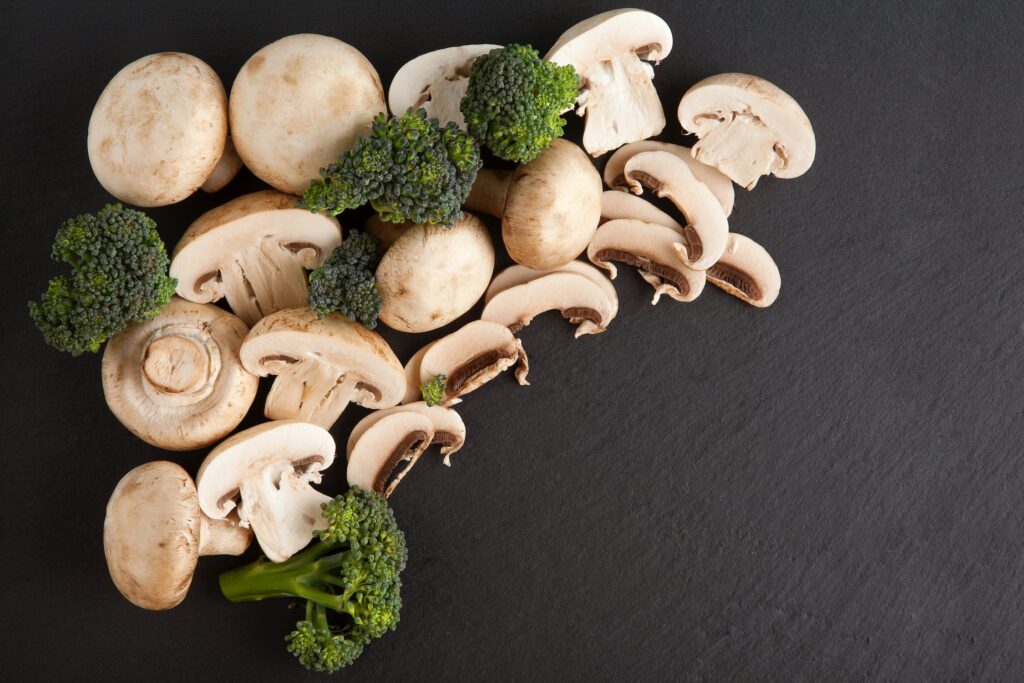
Are they better?
Short answer: Yes. Here’s how :
- No Synthetic Chemicals: Organic mushrooms don’t rely on herbicides, fungicides, and a whole host of other chemicals. They use other types of organic fertilizers and insecticides. The resulting yield has no accumulation of harmful chemicals, hence it’s a lot healthier to eat. They also use sustainable practices that ensure that minimum resources are wasted.
- Certification: Governing bodies label mushroom farms as organic only when they meet specific organic certification standards such as National Organic Program regulations. These standards hallmark the purity of such mushrooms.
- Nutritional Benefits: As we discussed before, researchers have found that these mushrooms are more nutritious than conventional ones for a variety of reasons. One of them being no culmination of harmful chemicals.
- Environmental Benefits: Since farmers use little to no chemicals during cultivation, the soil remains healthy and less acidic. Also, the microorganisms that are helpful for future crop cultivation remain sustained.
- Availability: Organic mushrooms are easily and readily available these days in most of the stores. Try to look for a grocery store that deals in organic veggies and you will most likely find it there, that too with many varieties.
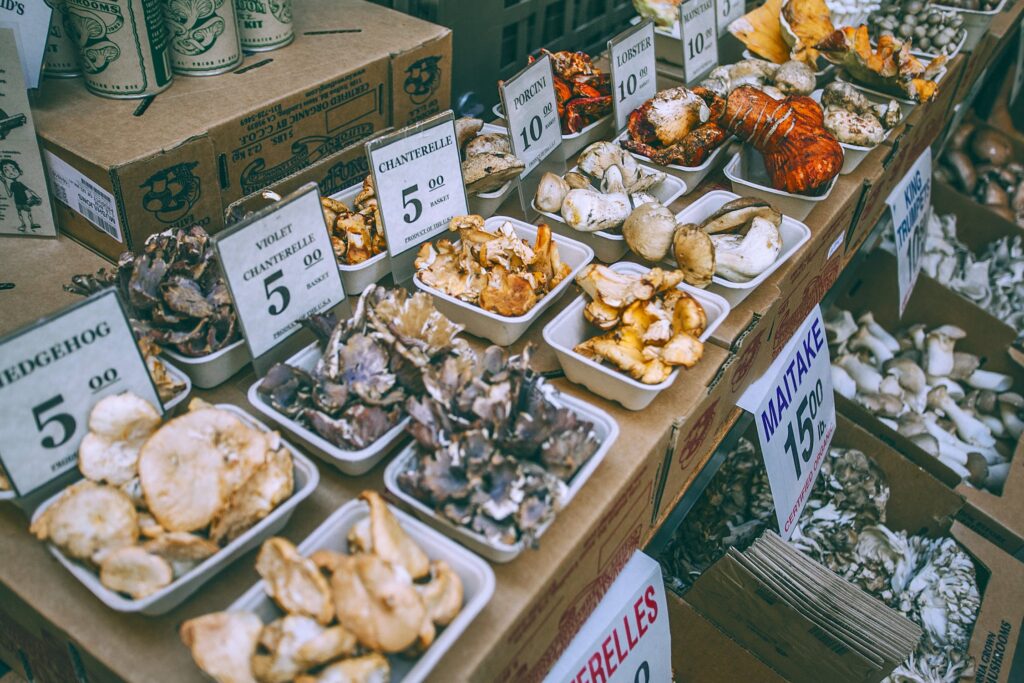
In summary, organic mushrooms are a great choice for people out there who are starting a sustainable and health-conscious journey. With all the nutrient and environment-related benefits, it outshines our conventionally farmed mushrooms any time of the day. If you are looking for more sustainable food resources then our post on organic peanut butter is a good place to start.
FAQs
- How to know if mushrooms are organic or not?
There isn’t a sure-shot way to find that out, however other than looking at the quality of mushrooms and deciding from experience, you can look for organic certifications that accompany.
- Are all mushrooms organic?
No, as discussed earlier, mushroom farming is a commercial business that involves a lot of synthetic chemical use, therefore, if not all, most mushrooms are not organic.



